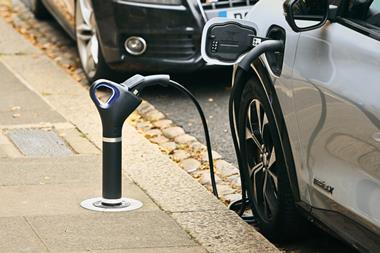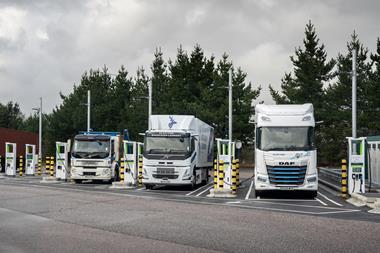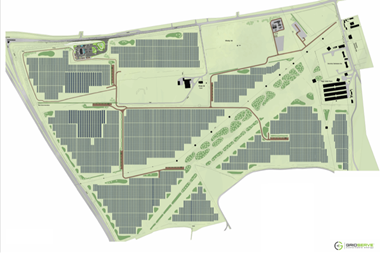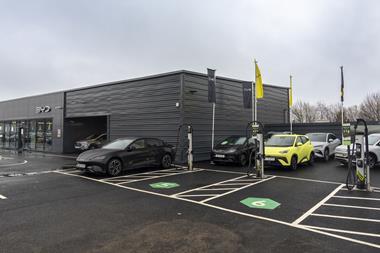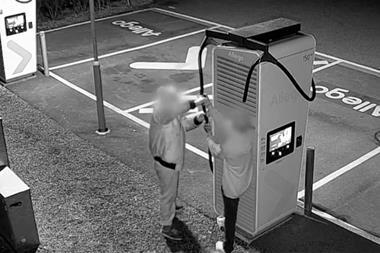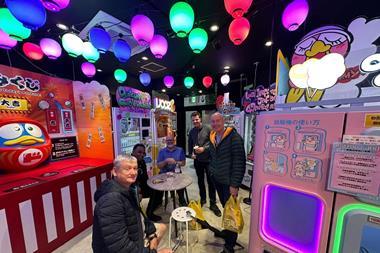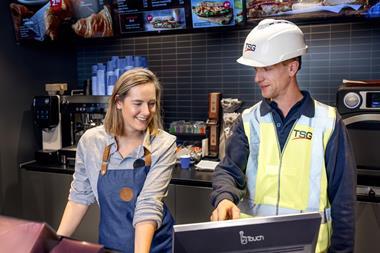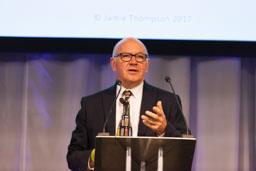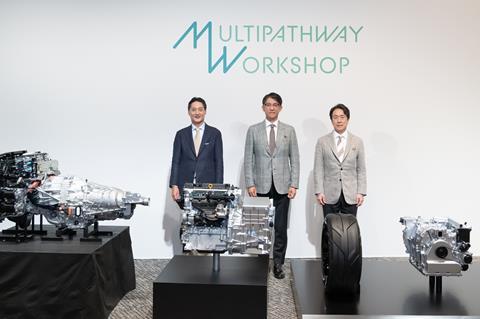
Vehicle manufacturers Toyota, Subaru and Mazda, have committed to the future of internal combusion engines by maximising their integration with motors, batteries, and other electric drive units, as well as making them compatible with various carbon-neutral fuels.
The fuels would have to comply with net zero CO2 emissions into the atmosphere across their lifecycle, from manufacture to use. These include e-fuel, made from hydrogen and carbon dioxide, and biofuels derived from biomass (plants, etc).
In pursuing decarbonisation, the three companies said they have focused on carbon as the enemy and sought to expand options which has driven efforts to ensure a future for the supply chains and jobs that underpin engines. Under the extreme conditions of racing, the companies have worked to broaden powertrain and fuel options by competing with vehicles running on liquid hydrogen and CN fuels.
The companies say this process has clarified the role that future engines will play in achieving carbon neutrality. With the next generation of engines, the three companies will seek to not only improve standalone engine performance but also optimise their integration with electric drive units, harnessing the advantages of each.
While being highly efficient and powerful, the manufacturers said the new engines will also revolutionise vehicle packaging by being more compact than existing models. Smaller engines will allow for even lower hoods, improving design possibilities and aerodynamic performance while contributing to better fuel efficiency. The development will also emphasize compliance with increasingly strict emissions regulations.
At the same time, the new engines will be made carbon neutral by shifting away from fossil fuels and offering compatibility with various alternatives, including e-fuel (synthetic fuel), biofuels, and liquid hydrogen. In doing so, these engines will contribute to the broader adoption of CN fuels.
Masahiro Moro, representative director, president and CEO, Mazda Motor Corporation, said: “We will continue to offer customers exciting cars by honing internal combustion engines for the electrification era and expanding the multi-pathway possibilities for achieving carbon neutrality. Given the rotary engine’s compatibility with electrification and carbon-neutral fuels, Mazda will continue to develop the technology through co-creation and competition to ensure it can contribute broadly to society.”
Koji Sato, president, member of the Board of Directors and CEO, Toyota Motor Corporation, said: “In order to provide our customers with diverse options to achieve carbon neutrality, it is necessary to take on the challenge of evolving engines that are in tune with the energy environment of the future. The three companies, which share the same aspirations, will refine engine technologies through friendly competition.”
Atsushi Osaki, representative director, president and CEO, Subaru Corporation, said: “Achieving a carbon-neutral society is a challenge that must be undertaken by all of Japan’s industries and society as a whole. As we continue to refine electrification technology, we will also enhance our horizontally-opposed engines with an aim to use carbon-neutral fuels in the future. Moving forward, the three companies sharing the same aspiration will continue to advance the pursuit of sustainable excellence in Japanese car manufacturing.”





















